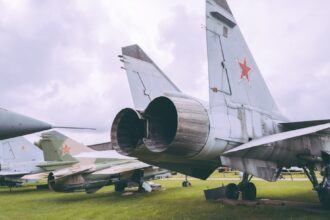The roots of exaggeration in Russian military history can be traced back to the early days of the Russian state, where the need to project strength and unity was paramount. From the time of Kievan Rus to the establishment of the Tsardom of Russia, leaders often embellished their military achievements to inspire loyalty and bolster national pride. This tendency to exaggerate victories served not only as a means of propaganda but also as a tool for consolidating power.
The narratives surrounding battles were often crafted to highlight the valor of Russian soldiers, creating a mythos that would resonate through generations. As Russia expanded its territory, particularly during the reign of Peter the Great and later Catherine the Great, the embellishment of military successes became more pronounced. The state sought to legitimize its imperial ambitions by portraying its military as invincible.
This narrative was not merely a reflection of actual events but rather a strategic choice to instill a sense of national identity and purpose among the populace. The glorification of military exploits became a cornerstone of Russian culture, intertwining with folklore and national mythology, thus laying the groundwork for future exaggerations.
Key Takeaways
- Exaggeration in Russian military history has its origins in the need to boost morale and create a sense of national pride.
- Examples of exaggeration in Russian military victories can be seen in the glorification of battles and heroic figures.
- The impact of exaggeration on Russian military culture has led to a tradition of valuing bravery and sacrifice in warfare.
- Exaggeration in Soviet-era military propaganda was used to promote the image of a powerful and invincible military force.
- The role of exaggeration in shaping Russian military identity has contributed to a strong sense of patriotism and national unity.
Examples of Exaggeration in Russian Military Victories
Throughout history, numerous instances illustrate the tendency to exaggerate Russian military victories. One prominent example is the Battle of Borodino during the Napoleonic Wars. While it is often hailed as a decisive victory for Russia, historians argue that it was more accurately a costly stalemate.
The Russian army suffered significant losses, yet the narrative that emerged portrayed it as a heroic stand against overwhelming odds. This embellishment served to galvanize public support and foster a sense of resilience among the Russian people. Another notable instance is the portrayal of the Siege of Sevastopol during the Crimean War.
The Russian narrative emphasized the bravery and endurance of its defenders, framing the siege as a symbol of national pride. However, the reality was marked by strategic blunders and eventual defeat. The exaggeration surrounding this event not only shaped public perception at the time but also influenced subsequent generations’ understanding of Russian military prowess.
Such examples underscore how exaggeration has been woven into the fabric of Russian military history, often overshadowing more nuanced accounts of events.
The Impact of Exaggeration on Russian Military Culture

The impact of exaggeration on Russian military culture has been profound and multifaceted. It has fostered a sense of exceptionalism among military personnel and civilians alike, creating an environment where success is expected and failure is often downplayed or ignored. This culture of exaggeration has led to a collective belief in the invincibility of the Russian military, which can have both positive and negative consequences.
On one hand, it instills pride and motivation among troops; on the other hand, it can lead to overconfidence and strategic miscalculations. Moreover, this culture has permeated various aspects of Russian society, influencing everything from education to art. Military victories are celebrated in literature, music, and film, often embellished to create a narrative that glorifies sacrifice and heroism.
This cultural phenomenon reinforces national identity and unity, but it also risks creating a disconnect between reality and perception. As such, the impact of exaggeration extends beyond mere historical accounts; it shapes how Russians view themselves and their place in the world.
Exaggeration in Soviet-era Military Propaganda
| Metrics | Data |
|---|---|
| Number of propaganda posters | Over 1,000 posters produced |
| Exaggerated claims | Claims of military superiority and invincibility |
| Depiction of enemy | Portrayal of enemy as weak and cowardly |
| Impact on public | Boosted morale and patriotism |
During the Soviet era, exaggeration reached new heights as the state employed propaganda to promote its military achievements. The Great Patriotic War against Nazi Germany became a focal point for this propaganda, with narratives crafted to emphasize Soviet resilience and heroism. The portrayal of battles such as Stalingrad and Kursk was often exaggerated to depict an image of an unstoppable Red Army that triumphed against insurmountable odds.
This not only served to boost morale during wartime but also solidified the legitimacy of the Soviet regime in the eyes of its citizens. The Soviet government utilized various media channels to disseminate these exaggerated narratives, including films, literature, and public speeches. The glorification of military leaders like Georgy Zhukov became commonplace, with their exploits often embellished to create larger-than-life figures.
This manipulation of history served a dual purpose: it reinforced state ideology while simultaneously fostering a sense of national pride among citizens.
The Role of Exaggeration in Shaping Russian Military Identity
Exaggeration has played a crucial role in shaping Russian military identity throughout history. The narratives constructed around military victories have contributed to a collective consciousness that values strength, resilience, and sacrifice. This identity is deeply rooted in historical events that have been embellished over time, creating a sense of continuity between past and present.
As a result, contemporary Russian military identity is often characterized by an unwavering belief in its own superiority and an expectation of success in conflict. Furthermore, this identity is reinforced through education and cultural expressions that celebrate military achievements. Textbooks often highlight exaggerated accounts of battles and heroes, instilling a sense of pride in young Russians from an early age.
This process not only shapes individual identities but also fosters a collective national identity that is heavily influenced by historical narratives steeped in exaggeration. Consequently, this has implications for how Russia approaches military strategy and international relations, as an inflated sense of self can lead to aggressive posturing on the global stage.
Exaggeration in Modern Russian Military Operations

In recent years, exaggeration has continued to play a significant role in modern Russian military operations. The annexation of Crimea in 2014 serves as a prime example where official narratives emphasized overwhelming success and popular support for military actions. State-controlled media portrayed the operation as a swift and decisive victory, downplaying any dissent or complications that arose during the process.
This portrayal not only aimed to solidify domestic support but also sought to project strength internationally. Moreover, during conflicts such as those in Syria and Ukraine, Russian authorities have employed exaggerated claims regarding military effectiveness and operational success. Reports often highlight high numbers of enemy casualties while minimizing losses on their side.
This practice serves multiple purposes: it boosts morale among troops, reinforces public support for military endeavors, and aims to intimidate adversaries by projecting an image of invincibility. However, such exaggerations can also lead to miscalculations in strategy and an underestimation of opponents.
The Influence of Exaggeration on Public Perception of the Russian Military
The influence of exaggeration on public perception of the Russian military is profound and pervasive. State-controlled media plays a crucial role in shaping narratives that glorify military actions while downplaying failures or setbacks. This creates an environment where citizens are more likely to view their military as infallible and heroic, fostering a sense of national pride that can be easily manipulated by those in power.
As a result, public perception often diverges significantly from reality. This skewed perception can have serious implications for domestic politics as well. Leaders may feel emboldened to pursue aggressive foreign policies based on an inflated sense of military capability, believing that public support will remain unwavering due to the glorified narratives propagated by state media.
However, this disconnect between perception and reality can lead to disillusionment among citizens when faced with actual outcomes that do not align with the heroic portrayals they have been fed.
Exaggeration in Russian Military Literature and Media
Russian military literature and media have long been vehicles for exaggeration, serving both artistic and propagandistic purposes. From classic works like Leo Tolstoy’s “War and Peace” to contemporary films depicting modern conflicts, narratives often emphasize heroism and sacrifice while glossing over complexities or failures. This literary tradition has contributed significantly to shaping public perception and national identity surrounding military endeavors.
In addition to literature, modern media continues to play a pivotal role in perpetuating exaggerated narratives about the Russian military. News reports frequently highlight supposed triumphs while neglecting critical analysis or dissenting voices. This selective storytelling reinforces existing beliefs about military prowess and fosters an environment where critical engagement with history is discouraged.
Consequently, this cycle perpetuates myths that can influence both domestic attitudes toward military actions and international perceptions of Russia’s capabilities.
The Consequences of Exaggeration for Russian Military Strategy
The consequences of exaggeration for Russian military strategy are multifaceted and often detrimental. An inflated sense of capability can lead to overconfidence among military planners and decision-makers, resulting in strategic miscalculations during conflicts. When leaders believe their forces are invincible due to exaggerated narratives, they may underestimate adversaries or fail to adequately prepare for potential challenges on the battlefield.
Moreover, reliance on exaggerated claims can hinder effective communication with both domestic audiences and international partners. If public perception is built on unrealistic portrayals of military success, any subsequent failures may lead to widespread disillusionment or loss of trust in leadership. This dynamic can create challenges for future military operations as leaders grapple with managing expectations while navigating complex geopolitical landscapes.
The Ethical Implications of Exaggeration in Russian Military History
The ethical implications surrounding exaggeration in Russian military history are significant and warrant careful consideration. By distorting historical narratives for political gain or nationalistic fervor, leaders risk undermining the integrity of historical scholarship and eroding public trust in institutions. Furthermore, this manipulation can perpetuate cycles of violence by fostering an environment where aggression is justified based on inflated perceptions of strength.
Additionally, there are moral responsibilities associated with how history is presented to future generations. When young Russians are taught exaggerated accounts devoid of nuance or critical analysis, they may grow up with skewed understandings that shape their beliefs about conflict and national identity. This raises important questions about accountability for those who craft these narratives and their impact on society at large.
Addressing Exaggeration in Russian Military Reporting and Analysis
Addressing exaggeration in Russian military reporting and analysis requires a concerted effort from scholars, journalists, and policymakers alike. Promoting critical engagement with historical narratives is essential for fostering a more nuanced understanding of Russia’s military past and present. Encouraging diverse perspectives within academic discourse can help challenge dominant narratives while providing space for alternative interpretations that reflect complexity rather than oversimplification.
Moreover, media literacy initiatives aimed at educating citizens about discerning fact from fiction can empower individuals to critically evaluate information presented by state-controlled outlets. By fostering an environment where questioning prevailing narratives is encouraged rather than stifled, society can begin to confront the consequences of exaggeration head-on while working toward a more accurate portrayal of Russia’s military history and identity. In conclusion, exaggeration has been an enduring element within Russian military history that has shaped perceptions both domestically and internationally.
From its origins rooted in early state-building efforts to its contemporary manifestations in modern conflicts, this tendency has profound implications for national identity, strategy, and ethical considerations surrounding historical representation. Addressing these issues requires ongoing dialogue among scholars, journalists, policymakers—and society at large—to foster a more accurate understanding that honors both past sacrifices while acknowledging complexities inherent within any narrative.
The Russian military has a long-standing history of exaggerating its capabilities and achievements, a practice that has been observed and analyzed by various military historians and analysts. This tendency to inflate military prowess can be traced back to the Soviet era and continues to be a topic of discussion in contemporary military studies. An insightful article that delves into this aspect of Russian military history can be found on the War Room website. For a deeper understanding of how these exaggerations have shaped perceptions and strategies, you can read more in this related article.
WATCH NOW! 🎖️ Plot Twist: Russia’s Military Is Being Eaten Alive By Its Own Corruption
FAQs
What is the history of the Russian military’s exaggeration?
The Russian military has a long history of exaggerating its capabilities and achievements, dating back to the Soviet era and continuing into the present day.
What are some examples of the Russian military’s exaggeration?
Examples of the Russian military’s exaggeration include inflated claims of successful military operations, exaggerated reports of military equipment capabilities, and misleading information about the size and strength of the Russian armed forces.
How does the Russian military’s exaggeration impact international relations?
The Russian military’s exaggeration can impact international relations by creating mistrust and skepticism among other countries, particularly those that are potential adversaries or competitors.
What are the potential consequences of the Russian military’s exaggeration?
The potential consequences of the Russian military’s exaggeration include undermining the credibility of the Russian military, damaging diplomatic relations, and contributing to a climate of uncertainty and suspicion in international affairs.
How does the Russian government respond to accusations of military exaggeration?
The Russian government typically denies accusations of military exaggeration and defends its military’s claims, often attributing any discrepancies to misinformation or misinterpretation by outside observers.




